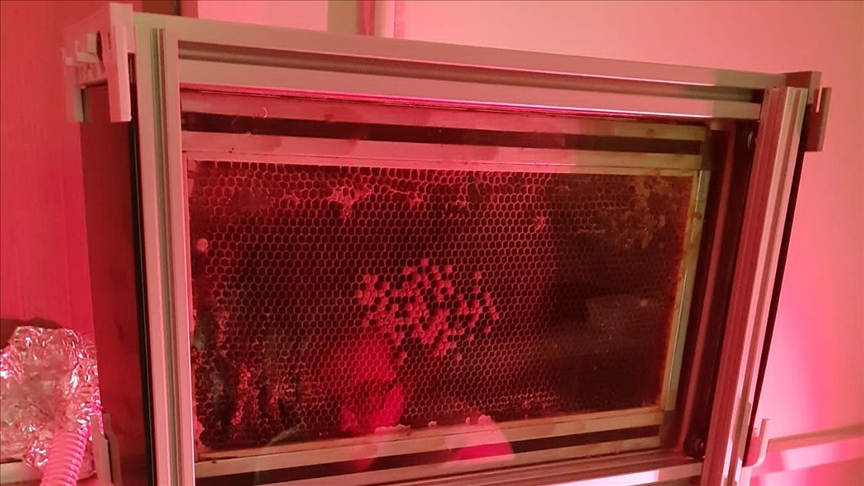
Middle East Technical University Wins Best Global Projects Award in "Robotic Bee" Development Competition
A team from the Middle East Technical University in Turkey has won the Best Global Projects Award in a recently held competition in the United Arab Emirates.
The project involves the development of robotic bees and the monitoring of beehives using artificial intelligence.
The Middle East Technical University team managed to secure the award after being selected from among 13 projects participating in the competition organized by the Edge of Government platform.
The competition took place on the sidelines of the "Global Summit for Governments 2024" hosted by Dubai last week, attended by Turkish President Recep Tayyip Erdoğan and more than 25 heads of state and government.
The innovative project by the Turkish university team focuses on developing robotic bees that feed endangered bees worldwide and monitor beehives using artificial intelligence.
Errol Shahin, the director of the Robotics and Artificial Intelligence Research and Applications Center at the university and a faculty member of the Computer Engineering Department, spoke about their project named "Roboroyale," supported by the European Union's Horizon program.
Shahin explained that the project began two years ago under an international consortium led by Durham University in the UK, involving collaboration between Middle East Technical University in Turkey, Czech Technical University, and Graz University in Austria.
He noted that the research and development team overseeing the project comprised 20 individuals, with each participating country playing a different role.
Shahin emphasized that if bees were to become extinct, the entire ecosystem would be threatened with collapse, indicating that the project aims to develop a new generation of beehives equipped with the latest technologies.
He added, "Our work at our university as engineers and biologists is to innovate an artificial intelligence system that can monitor beehives and invent robotic bees that monitor the feeding and health of queen bees, enabling them to produce more offspring."
The team also developed an artificial intelligence system capable of monitoring the inside of the hive around the clock and throughout the week. Thus, the health of the bees in the hive, especially the queen, can be monitored, according to the director.
Furthermore, the team has developed the initial model of small robotic bees that mimic worker bees and feed the queen bee through external control. Consequently, they were able to feed the queen bee using the small robotic bees they developed.
The developed robotic bee serves the queen bee, and the university team is currently working on making the innovative robots clean and maintain the hive.
The goal of this system is to protect and improve the overall health of the hive, Shahin explains, emphasizing the importance of having more worker bees in the hive for the ecosystem.
He added, "More pollination occurs, trees produce more fruit, and more seeds mean more food, and this way we can protect the entire ecosystem."
The Turkish academic affirmed that their main goal is to protect the health of the queen bee even if the hive faces difficult conditions.
He also said, "In this way, we try to find a solution to continue the generations of bees by protecting the endangered bees."
Shahin concluded his remarks by expressing hope that the plant and animal ecosystem we live in would be improved, and a healthier world would be created through the bees that emerge from these hives.
Amazing Istanbul
